Starting from scratch: Matthew Slater, barefoot economist and Credit Commons co-designer, Part 1
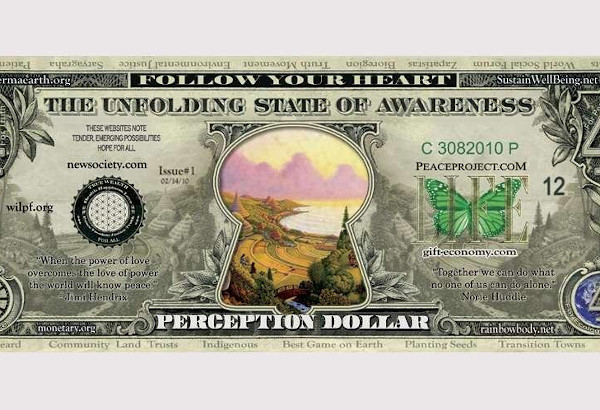
Donald Trump recently derided Greta Thunberg and everyone pleading with government to heed environmental science as ‘doomsayers’. The more imminent peak oil or environmental collapse appear, the more intransigent our political system seems to be. Whatever the reasons for this, responsible citizens can only accomplish so much while the political and economic winds are blowing against them.
It’s tempting to give up on the very notion of progress; to accept that humans are condemned by God to dream of better societies but never to build them. I don’t blame anybody who retreats into their books, their garden or their movies and tries to maintain their own happiness alone. What should we prepare for, what should we hope for, beyond a quiet life and peaceful death?
There are always scenarios about which we can do nothing – asteroid strike, plague, nuclear war; if these seem more likely there is and never was any point dwelling on them personally.
For many of us, the urge do something remains. But we don’t really know how the enormous prospects of climate chaos and capitalism’s reaction to it will affect us, or what exactly to prepare for. The best we can do then, is accept the coming losses, process our trauma, and while we still have time and resources, try to create more resilient ways of meeting our needs.
If we look under the ‘new economy‘ umbrella most of the discourse is about steering the juggernaut of capitalism towards social and environmental justice
- The cooperative movement aims for social justice by changing the ownership structure of our businesses.
- Ethical consumers hope to use their muscle in the market to make progressive businesses more viable.
- The divestment movement hopes to shift (access to) capital from immoral enterprises and towards moral ones.
- The sharing economy, popular a decade ago, promised to reduce our consumption by renting rather than owning capital-intensive products like cars and electric drills. That would have been a good start, but where is it now?
All of these are couched in terms of progress, which seem less and less realistic in the face of oil depletion and environmental crisis. As the Roman Empire declined, it taxed all the money and resources towards the centre, impoverishing the periphery, and I believe that capitalism is declining in much the same way as the gap widens between rich and poor. Unless we can disconnect, all the property, wealth, health and freedom we have gained in the last decades will be sucked into a black hole.
Disconnecting is no trivial matter. The Market of capitalism is not just your High Street, but is better viewed as a single global system comprising of:
- supply chains
- organisations
- standards / regulations
- credit / money
– which together most efficiently concentrate wealth in the hands of fewer and fewer shareholders. Most of us depend for everything we earn and everything we spend on that all-encompassing machine.
A strategy of resilience and independence from capitalism doesn’t mean fleeing to the forest and building your own wattle and daub hut. It means withdrawing people and equipment from the Machine, creating intermediate social and economic structures, and turning our backs on that Machine as soon as expedient. It’s no easy task, and requires a shift of the imagination, a resetting of priorities.
That resilience comes through meeting your needs and the needs of your family more directly. It isn’t about ‘self’ sufficiency, which is a lot of work and expense, but about sufficiency of whole communities, larger circles of production and consumption, but closed off from the Machine. Simply committing to buy from new economy producers, and investing money in them won’t ultimately help you unless you are part of their loop of production and consumption.
So who are these people who will produce what we consume and consume what we produce? Before we can withdraw our own spare energy from the dying economy and start producing things for ourselves we will need to identify our new economic partners. Part 2 tomorrow, when I’ll talk more about this.
 About the author
About the author
Matthew Slater develops software for complementary currencies. He co-founded Community Forge, which free hosts software for collaborative credit schemes; he co-authored the Money & Society MOOC, a free masters level multidisciplinary online course. He co-drafted the Credit Commons white paper, a proposal for a global solidarity economy money system, based on mutual credit principles. Core team member of @deepadaptation. Collapsenik.
The views expressed in our blog are those of the author and not necessarily lowimpact.org's
11 Comments
-
1Steve Gwynne February 15th, 2020
Capitalism, or any other modern economy, intrinsically relies on fossil fuels. Fossil fuels are indeed running out. Based on BP’s Statistical Review of World Energy 2016, we have about 115 years of coal production, and roughly 50 years of both oil and natural gas remaining.
https://ourworldindata.org/how-long-before-we-run-out-of-fossil-fuels
In recent times, global fossil fuel consumption has been buoyed up by American fracking which is now on rapidly diminishing returns.
Within this context, it is the increasing costs of extraction and processing that has already begun systemic prosperity degrowth in the Western Hemisphere.
https://surplusenergyeconomics.wordpress.com/2020/01/13/162-the-business-of-de-growth/
The real question then is how do we sustain human civilisation without fossil fuels especially when it is considered that the economy is an energy system not a financial one.
Capitalism is largely predicated on capital efficiency which informs energy efficiency and material efficiency despite rebound effects and decoupling endeavours.
The real struggle is in transforming our understanding of the economy into one which is predicated on an energy system.
This undoubtedly means shifting towards resource (energy and material) based economic thinking.
The extent of which capitalism or any other economic system is able to deeply adapt to the paradigm of a resource based economy is our greatest challenge.
How are highly urbanised metropolitan centres which are largely detached from the energy and material basis of their livelihoods but are instead focused on money is a particularly complex dilemma. When in reality, money and credit are simply functions of energy because, being an artefact wholly lacking in intrinsic worth, money commands value only as a ‘claim’ on goods and services – all of which, of course, are themselves products of the use of energy.
Thus, how do we see energy as the actual currency of our survival rather than money.
-
2matslats February 15th, 2020
> how do we sustain human civilisation without fossil fuels?
Not sure that’s gonna be possible, for anybody, let alone for a few alarmists.
My focus is narrowing towards:
How do we sustain ourselves without access to fossil fuels?
-
3Dave Darby February 15th, 2020
Steve – sure, but the current money system concentrates wealth and power in the hands of very few people at the top of the banking / corporate world. In which case, it’s pointless talking about what ‘we’ are going to do. ‘We’ are going to do what we’re told under those circumstances. Of course we can change the way we live as individuals (although that’s getting much more difficult), but the system trundles on, stimulating overconsumption (destroying nature), sucking wealth out from all over the world (destroying communities) and concentrating wealth (destroying democracy).
Also, if fossil fuels do ‘run out’, it will mean that they’ve all been burnt. That doesn’t really bear thinking about in terms of climate / human survival, but it’s not going to be possible to keep them in the ground with this money system / power structure.
-
4Dave Darby February 15th, 2020
Steve: ‘The extent of which capitalism … is able to deeply adapt to the paradigm of a resource based economy’
Impossible imho. It would have to ‘adapt’ to the point that it’s not capitalism any more. We need C-M-C rather than M-C-M’, and that ain’t capitalism.
-
5Dave Darby February 15th, 2020
Matthew: ‘A strategy of resilience and independence from capitalism doesn’t mean fleeing to the forest and building your own wattle and daub hut.’ – yeah, ok, that’s not a good strategy for the majority of the population, but it’s fine for those who want to do it – at least they won’t be contributing to the problem. (https://www.lowimpact.org/lowimpact-topic/wattle-daub/)
-
6Steve Gwynne February 15th, 2020
https://physicsworld.com/a/uk-announces-220m-to-design-a-commercially-viable-fusion-power-plant/
https://www.h2-view.com/story/worlds-largest-renewable-hydrogen-factory-starts-fit-out/
Capitalism is already adapting.
However, I agree Dave, we need a diversity of solutions including XR buying up land to facilitate agroecological farmsteads.
-
7Dave Darby February 15th, 2020
Steve – yeah, but it’s the same game. Corporate branches in all our communities, sucking money out to be deposited ultimately in tax havens, and used to buy governments. They’ll produce different things – like nuclear (as well as still burning all the fossil fuels tho) – but money paid by ordinary people for that electricity will still end up in the same place. Meanwhile we’ll be bombarded by advertising and client states will chase perpetual growth. The solution isn’t technological – see https://en.wikipedia.org/wiki/Jevons_paradox. Tech can buy us time, yes, but ultimately we need economic institutions that don’t drain communities, concentrate wealth or promote ever-increasing consumption.
-
8Steve Gwynne February 16th, 2020
Dave. I certainly don’t disagree that we need more bottom up institutions that retain accumulated community wealth but this also means more regionalised long chain supply lines which cannot be supported by regional raw materials especially in Britain with our massive ecological debt.
For example, we need to import nearly half of our food. How are regional communities to source energy and materials if they are not available regionally.
-
9Steve Gwynne February 16th, 2020
Matthew. I share your narrow focus in that I live in my allotment shed and am able to largely sustain my dietary and heating needs. I use gas for cooking which hypothetically could be bio-gas if there was a local producer.
I use a solar panel when I can but invariably need to charge my 22000mAh power pack via the mains which hypothetically could be a green tariff but despite being on the allotment committee, this is largely out of my control.
I don’t have a vehicle.
So it is possible. I’ve been here three years this May.
An idea that often pops into mind is buying up a field of plots that have already been taken out of agricultural use
Eg https://www.ebay.co.uk/itm/254507110833
and then develop the plots for low impact living by squatting as a form of protest against the planning system, especially as One Planet Development guidelines for example requires land holders to earn a certain amount from the land in order to add value to the local economy.
Not sure what your thoughts are in this regard. Cheers
-
10Dave Darby February 16th, 2020
Steve – I hear you. I think there are answers, if the will is there.
1. stop exporting food that we need domestically (we export c 250k tonnes of potatoes each year, and import c 120k tonnes. makes no sense, except to an economist. same for most foods.) If we produce it, let’s eat it, rather than burning fuel to shunt it somewhere else).
2. downshift – let’s just use less stuff. Sounds like you’re well ahead on that front.
3. co-operativise those chains, to prevent wealth extraction. We can send ale to Portugal and get olive oil back. Ideally, we can do it by sail / wind – https://www.lowimpact.org/how-we-got-olive-oil-from-a-small-farm-in-portugal-brought-over-in-a-sailboat-by-a-co-operative-based-in-brighton-and-how-you-can-do-the-same/. Marginal now, but it used to be the norm – it’s doable, and in a sane world, there would be a lot more of it. Mutual credit / credit commons can help.
-
11Doctor Hilary Jones February 17th, 2020
Dear Steve Gwynne
I’m excited to think of a plot as near to here as Bethersden being used as you describe. (I’m farming in Egerton) What can we do? ‘Phone me 01 233 756468
Love Hilary




 Can elections really change anything?
Can elections really change anything?
 Is Greta Thunberg right, and if so, what do we do about it?
Is Greta Thunberg right, and if so, what do we do about it?
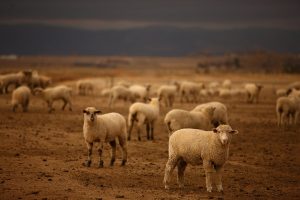 New topic – ‘commoning’ – and why ‘the Tragedy of the Commons’ is wrong
New topic – ‘commoning’ – and why ‘the Tragedy of the Commons’ is wrong
 What’s wrong with billionaires?
What’s wrong with billionaires?
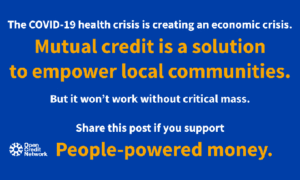 Mutual credit is a solution to the COVID-19 economic crisis
Mutual credit is a solution to the COVID-19 economic crisis
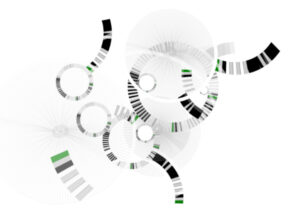 Building the Credit Commons with Mutual Credit Clubs: Matthew Slater
Building the Credit Commons with Mutual Credit Clubs: Matthew Slater
 Matthew Slater’s review of recent money news
Matthew Slater’s review of recent money news
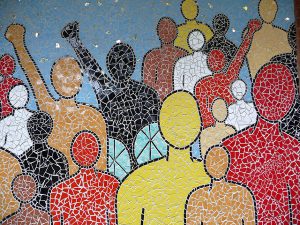 Commoning
Commoning
 Community
Community
 Low-impact living
Low-impact living
 Low-impact money
Low-impact money
 Low-impact shopping
Low-impact shopping
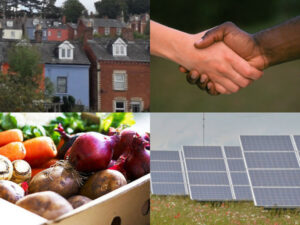 Commons economy
Commons economy
 Personal development
Personal development
 Philosophy
Philosophy
 Self-employment
Self-employment


